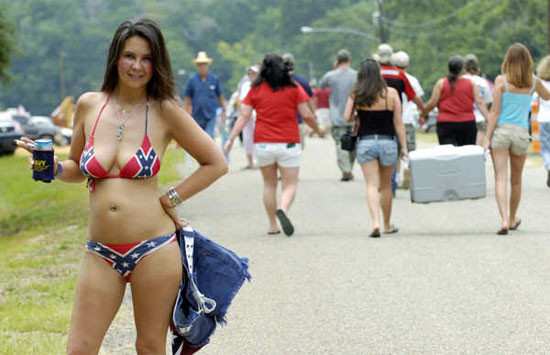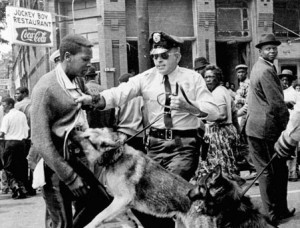The scene unfolds in a karaoke bar nestled in suburban Birmingham, Alabama. A diverse crowd, split evenly between black and white patrons, had been enjoying a typical evening of karaoke. The song selections were standard fare, predictable even, until a black woman took the stage. She began to sing Gretchen Wilson’s iconic anthem, “Redneck Woman Song.”
Then, something unexpected happened. As the song progressed, a white woman joined her on stage, turning the solo performance into an impromptu duet. For those present, it was a moment that blurred lines and challenged perceptions. Days later, the memory of this unexpected harmony still lingered, prompting questions about its meaning. Was it a sign of a post-racial society? Or simply a bizarre, racially ambiguous occurrence? This unlikely karaoke duet sparked an intense need to understand the undercurrents of race, identity, and music at play, especially within the context of the “redneck woman song” and its complex connotations.
To truly understand the weight of this moment, we need to unpack some loaded terms that are central to this discussion.
Understanding “Post-Racial” in America
It’s an uncomfortable term, “post-racial,” carrying with it the weight of denial and a premature declaration of victory over deeply ingrained societal issues.
 Rawni White, Miss Redneck of the Year 2007, embodies the complex and often contradictory meanings associated with the term "redneck."
Rawni White, Miss Redneck of the Year 2007, embodies the complex and often contradictory meanings associated with the term "redneck."
The concept of a “post-racial” America gained traction during Barack Obama’s presidential campaigns and subsequent election. It was an appealing idea, fueled by the hope that electing a black president signified a fundamental shift in American race relations. As explored in a previous article on this website, the optimism surrounding a post-racial era suggested that race would no longer be the dividing force it once was. This aspiration resonated deeply with many Americans across the political spectrum, weary of the nation’s divisive racial history, from the Three-Fifths Compromise to the Civil Rights Movement. The election of Obama seemed to offer a seductive promise: that perhaps the nation had finally overcome its racial demons.
However, the reality of a truly “post-racial” America proved to be more elusive. The resurgence of overt racism during and after Obama’s presidency made it clear that simply electing a black president did not erase centuries of racial inequality and prejudice. The hard work of dismantling systemic racism and changing societal attitudes requires far more than symbolic victories.
Perhaps this unexpected “Redneck Woman song” duet was a microcosm of this larger, ongoing struggle towards a more equitable and unified society? Before delving deeper into that question, we must grapple with another loaded term: “redneck.”
Decoding the “Redneck” Identity
The term “redneck” immediately conjures images of poor, white Southerners. While this surface-level definition is widely understood, the deeper connotations of “redneck” are far more nuanced and often contradictory. At its most benign, “redneck” can represent a simple, unsophisticated individual who lives in a rural setting, often misunderstood and unfairly judged by urban elites. This is the image championed in Gretchen Wilson’s “Redneck Woman song” and music video, a celebration of a down-to-earth, unpretentious lifestyle. Many who identify with the term “redneck” embrace it as a badge of pride, reclaiming it from its potentially derogatory origins.
However, there’s a darker, more problematic side to the “redneck” stereotype. It can be associated with backward, prejudiced views, particularly regarding race and gender. While some self-proclaimed “rednecks” vehemently reject these negative connotations, others embrace them, even flaunting bigoted attitudes as part of their identity. The term, therefore, exists in a complex space, carrying both positive and negative baggage depending on context and perspective.
This complexity is crucial when considering the karaoke performance. The meaning of “redneck,” like the meaning of the “Redneck Woman song” itself, is not fixed but rather shaped by the audience and the intent behind its use.
The Birmingham Backdrop: A City with a Complex Racial History
Before analyzing the karaoke moment itself, it’s essential to understand the setting: Birmingham, Alabama. For many outside the United States, and even for many within, Birmingham is synonymous with the turbulent history of the American Civil Rights Movement. Its past is deeply intertwined with racial segregation and violence. Birmingham was a notorious stronghold of racist ideology and activity during the Civil Rights era. The horrific bombing of the 16th Street Baptist Church in 1963, which killed four young black girls, stands as a stark reminder of the city’s painful racial history. This act of terror, perpetrated by the Ku Klux Klan, galvanized the nation and ultimately contributed to the passage of the Civil Rights Act of 1964.
 A seemingly ordinary karaoke night in Birmingham, AL, becomes a stage for exploring complex racial dynamics through the unexpected performance of "Redneck Woman song."
A seemingly ordinary karaoke night in Birmingham, AL, becomes a stage for exploring complex racial dynamics through the unexpected performance of "Redneck Woman song."
Despite this heavy historical baggage, the karaoke bar in question was filled with a racially mixed crowd, enjoying a seemingly harmonious evening. There were no overt signs of racial tension, suggesting a degree of progress, or at least a temporary truce, in a city historically defined by racial division.
It was within this context that the black woman chose to sing “Redneck Woman song.” And it was into this atmosphere that the white woman stepped onto the stage to join her.
Was the “Redneck Woman Song” Duet a Post-Racial Moment?
The central question remains: did this unexpected duet represent a “post-racial” moment? The answer, like the song itself, is multifaceted and depends heavily on interpretation. To unpack this, we need to consider the potential intentions and perceptions of everyone involved: the black woman singer, the white woman who joined her, and the racially diverse audience.
Firstly, the black woman’s song choice is key. Did she choose “Redneck Woman song” ironically? Was it a playful commentary on the predominantly white associations of the “redneck” identity within a Southern context? Or was it a genuine embrace of the song’s celebration of a down-to-earth, unpretentious lifestyle, irrespective of racial lines? If her intention was to mock or challenge white audience members through the song choice, it would certainly undermine any “post-racial” interpretation. However, if she was simply drawn to the song’s energy and message on a personal level, it opens up different possibilities.
Secondly, the white woman’s decision to join in is equally significant. Was it a spontaneous act of musical camaraderie? Did she interpret the black woman’s performance as an invitation to bridge racial divides through shared enjoyment of a song? Or, more problematically, did she see it as a moment of “racial reconciliation” where the black woman was somehow endorsing or validating the “redneck” identity, potentially overlooking its problematic aspects? The white woman’s intentions, while likely benign, could be interpreted in various ways.
Finally, the audience’s reaction is crucial. Did they perceive the duet as a positive, unifying moment? Did they appreciate the irony, humor, or unexpectedness of the performance? Or did some audience members feel uncomfortable or even offended, perceiving it as a misstep or a challenge to racial identities? Without knowing the individual reactions of everyone present, it’s impossible to definitively label the moment as universally “post-racial.”
Despite these ambiguities, the fact remains that no conflict erupted. There were no visible signs of discomfort or hostility in the karaoke bar. This suggests that, at the very least, the performance did not trigger negative reactions and may have even been perceived positively by many.
A Partial Harmony, Not a Post-Racial Anthem
So, was it a “post-racial” karaoke moment? While it might be an overstatement to declare a resounding “Hell yeah!” in the spirit of the “Redneck Woman song,” a more nuanced answer is “partially, yes.” This unexpected duet, within the specific context of Birmingham and the “redneck woman song,” represents a complex cultural moment. It highlights the ongoing negotiation of race and identity in America, where music can act as both a bridge and a potential minefield.
Just as Barack Obama’s election did not single-handedly usher in a post-racial era, this karaoke performance, while intriguing and potentially positive, does not signify the end of racial complexities. However, it offers a glimpse into the evolving dynamics of race and culture, suggesting that even within historically charged spaces, unexpected moments of connection and perhaps even understanding are possible, one karaoke song at a time. The “redneck woman song,” in this unexpected Birmingham karaoke bar duet, became a vehicle for exploring these complexities, leaving us to ponder the ongoing journey towards a more harmonious, if not entirely “post-racial,” future.


